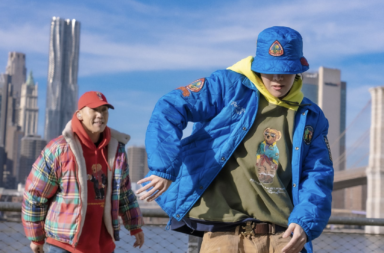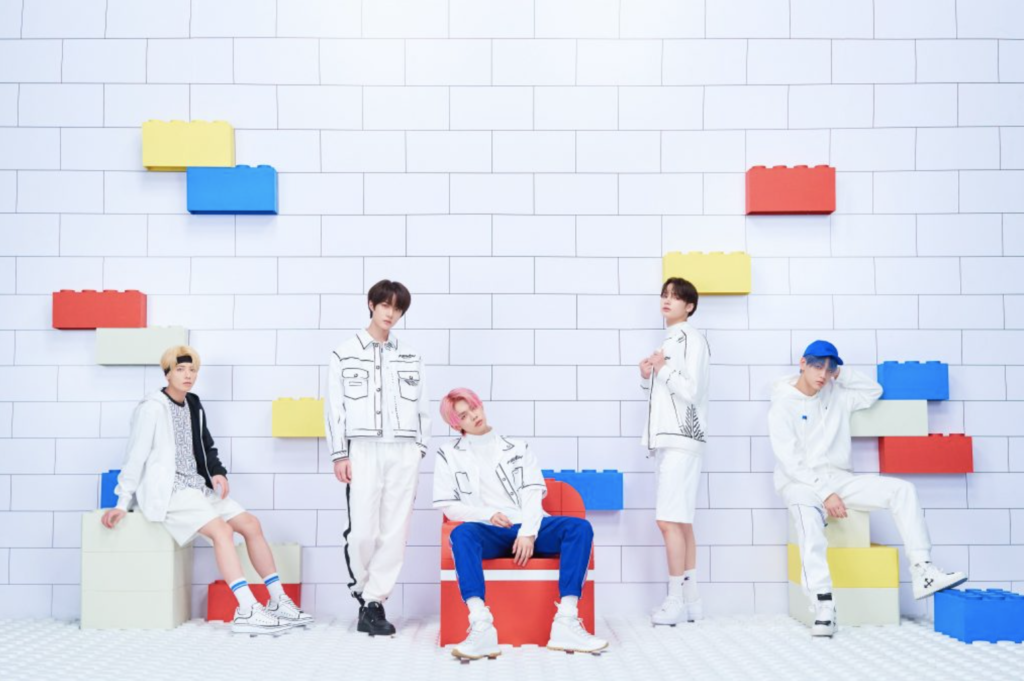
The COVID-19 pandemic has touched every person, industry, musical release, and minute detail of life, but one aspect has emerged a powerful force of comfort and hope to be reckoned with: K-pop.
As the world continues to bear through the coronavirus pandemic, many K-pop artists are directly addressing its impacts in their music to comfort fans and listeners around the globe, as well as themselves, at a time when we all need it most. While a large part of K-pop’s 2020 releases were marked by a musically upbeat, lyrically carefree vibe, many artists and groups found a way to pointedly and honestly speak to the moment we are all living through, and their listeners, as if to say, “We understand what you’re going through, we feel the same way, and things will get better soon” — a type of messaging that is arguably especially prominent in K-pop, which was essentially born out of a historical moment that prompted artists to relate to and represent young people in their music.
Fans recognize this phenomenon, often turning to social media to thank their favorite artists and groups for putting out music that encourages them, makes them feel seen and heard, and gives them hope and comfort that there are, in fact, better and brighter days ahead.
Music is always connected to the times in which it is made. K-pop is no different, and oftentimes fits the bill in this respect even more so than its other musical counterparts. Modern K-pop as we know it today has a long and pointed history of directly addressing the experiences and anxieties of young people (its primary audience) to relate not only to listeners in Korea but to those around the world too. Take TXT’s “We Lost the Summer,” the second promotional single for the group’s Minisode1: Blue Hour album, and perhaps the most pointed discussion of the life-altering toll the pandemic has taken on young people in particular. The track presents a narrative of the new and uncharted reality of life that teenagers have had to face during the ongoing COVID-19 pandemic, including not being able to attend school or see friends in person, and all of the emotions and anxieties that come along with it.
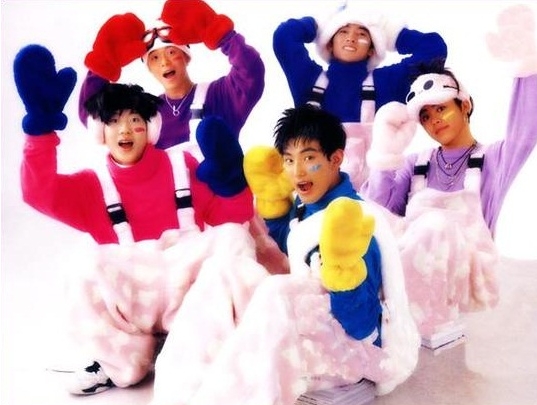
During the group’s online press conference and media showcase for Minisode 1: Blue Hour, Soobin, TXT’s leader, stated that “Thinking about a song for people who have lost their ordinary lives, producer Bang Si-Hyuk gave us an idea,” explaining that Bang had been inspired by Han’s Band’s 1998 song “Arcade,” which “had been a comfort song for Koreans going through the IMF financial crisis of 1997,” the same event that essentially spurred K-pop into what it is today.
Although its causes are still disputed, the 1997 financial crisis launched South Korea into severe economic downturn, leading the government to secure a loan for up to $57 billion from the IMF in December 1997. To raise South Korea’s economic and overall global presence and spirits, then-President Kim Dae-jung decided to invest the country’s loan money into bolstering its popular culture exports and soft power, primarily in music and the K-pop industry, which by then was only a tiny seedling of what it is today. In just a short period of time, entertainment companies like SM, YG, and JYP, with the help of the government, began investing in and forming K-pop’s well-known system of sourcing, training, debuting, managing, and creating idols and idol groups.
The sudden birth and success of K-pop and young idol groups through this new system, including Seo Taiji and Boys (often known as the “beginning of K-pop”), followed by H.O.T. (SM Entertainment’s first idol group), who both, along with several other early groups, addressed in their music the everyday experiences and issues impacting the young people who listened to them, led to a model of music-making in South Korea in which critiquing Korean society and relating to the frustrations and worries of younger audiences on a raw, emotional level in their music was the norm. That norm has expanded along with the genre’s own global reach to represent the qualms and emotions of younger audiences both inside and outside Korea too, just as evidenced by TXT’s “We Lost the Summer.”
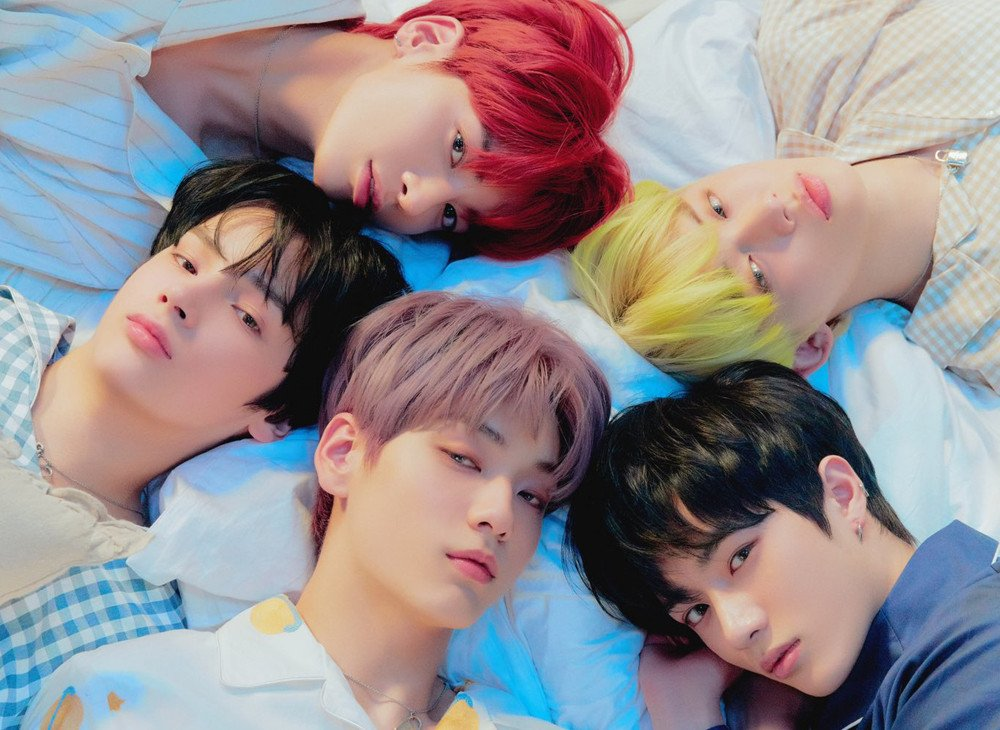
“We Lost the Summer”’s lyrics clearly express the group’s lament and disappointment at the unexpected changes COVID-19 has brought to teenage life, signaling to fans that they, too, are experiencing much of the same changes and pains
“We lost the sunset, now don’t know what to do
Many first days after the first day left on my calendar
I’m left on the endless evening of March 1
And
The door of the cafe I used to be locked tightly
Hiding a sigh, behind a cramped mask
I hate my face without expressions
The song’s accompanying music video also serves to comfort fans with its relatable visual portrayal of pandemic era life, via shots of the group’s members wearing masks, stuck in their rooms at home, video chatting on their laptops, and standing in socially-distant formations. TXT’s “We Lost the Summer” and its accompanying video has led fans to notice and appreciate how the group’s members “aren’t afraid to talk about the struggles that everyone including them have gone through because of covid,” explained one fan via Twitter.
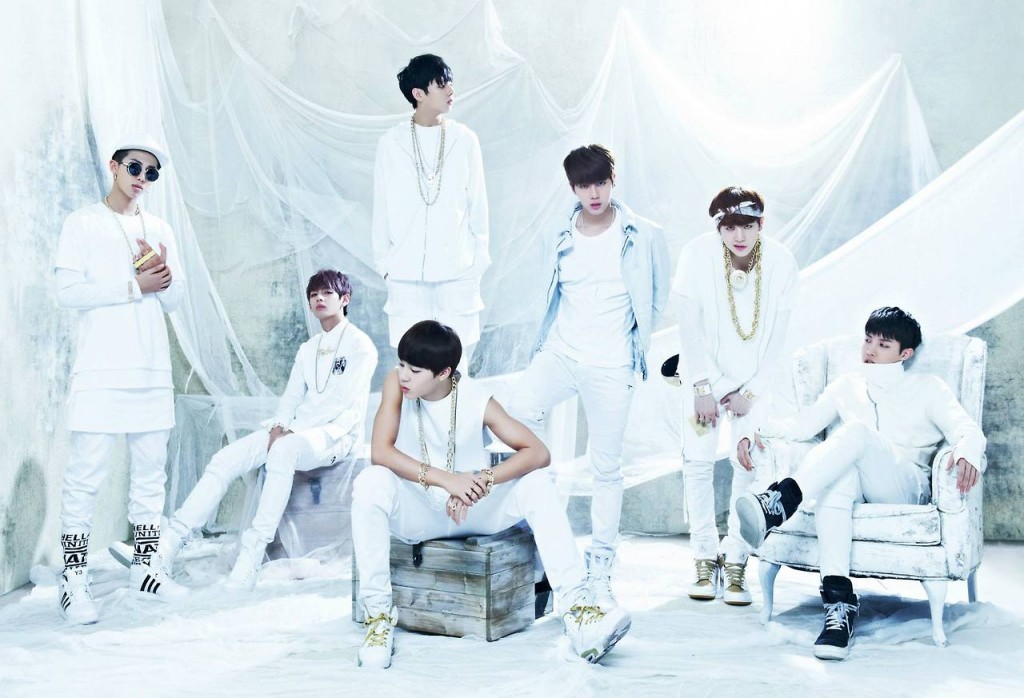
Similarly to how Bang Si-Hyuk, founder of BigHit Entertainment, took inspiration from Han’s Band’s “Arcade” to turn TXT’s “We Lost the Summer” into a relatable pandemic era time capsule of younger generations’ troubles and experiences, Bang also sourced similar inspiration when creating global sensation BTS. BTS originally began as a hip hop group that followed in Seo Taiji’s and other early idol groups’ footsteps in addressing common societal pressures felt by young people in Korea, often having to do with school and work, as signaled by their debut track, “No More Dream,” and follow-up single, “N.O.” Bang’s goal in forming BTS was to put forth an artist that fans and especially young people could turn to for support and comfort whenever they needed it, also seeking to create a unique online artist-fan relationship where idols could more directly and regularly interact and communicate with their fans, and vice versa.
While it’s fairly common knowledge that K-pop idols were created to be “consumed” by their fans, in what is known as a parasocial relationship, the development of social media platforms more specific to K-pop like VLive, Weverse, Bubble, and other fancafes, in addition to artists’ regular use of YouTube and Twitter, means that idols and fans can and do interact with one another more regularly and directly than is the case with most other artists and their fans. Idols often use such social media platforms to air live streams in which they speak directly to and respond to fans in real time, or post their own content or replies to messages posted by fans.
Although manufactured to an extent, idols utilize such social platforms to create as real of a connection with their fans as possible, often holding their relationship with their fans to the same level of importance as the very music they release. In their music, K-pop artists then often seek to expand upon this relationship, expressing an understanding of their fans’ personal experiences to support and connect with them on a deeper level, like Bang PD intended with BTS. With the pandemic’s cancellation of concerts and in-person events, a crucial part of any musical experience, both idols and fans have had to reroute to stay connected with one another, with artists especially turning back to their music to speak to and comfort their fans.
“Life Goes On,” the leading track off of BTS’ most recent album BE, is the group’s latest representation of that unique and sacred relationship between artist and fan and the desire to connect with and comfort fans through music. BTS effectively reminds its listeners, even just via the song’s title, that “Life Goes On,” painting an honest picture of pandemic life and the feelings of uncertainty and anguish that have come along with it through the song’s lyrics and accompanying music video. In the pre-chorus, vocalist V sings, “There’s no end in sight/Is there a way out? My feet refuse to move, oh,” expressing feelings of frustration that have been commonplace for many since the beginning of the COVID-19 pandemic. In the song’s chorus, Jungkook and Jimin go on to reassure listeners that things will get better, and better days are soon ahead:
Like an echo in the forest
The day will come back around
As if nothing happened
Yeah, life goes on.
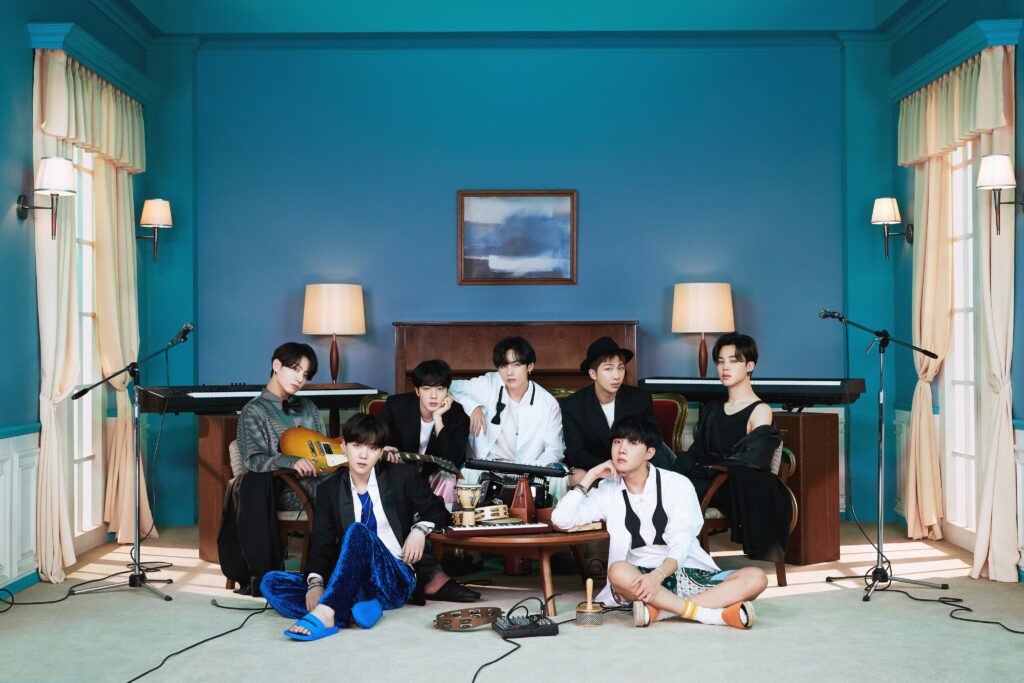
While “Life Goes On” serves as a source of support and encouragement for the fans, it was also written by BTS’ members as an outlet to express and define their own grief and frustrations surrounding the pandemic and provide themselves with their own source of hope and strength. In an interview with Genius Verified about the single, leader RM explains:
[When the uncertainty of the pandemic set in] we were in desperate need of hope and joy and I’m sure others went through the same situation. We take a lot of comfort in music, and since it’s our specialty, we wrote ‘Life Goes On’ with a focus on the emotions of today.
And, as Jimin explains in the same interview, the song is also a representation of the group’s closeness with and desire to connect to their fans while they’re unable to see one another during this time:
I think what I miss the most is the loud cheers [of ARMY]. It’s their support that gives us a lot of strength, the determination to get back up when we feel down, something to lean on when we’re struggling, happiness, etc.
ARMY has felt that same reciprocated support from BTS through “Life Goes On” loud and clear. The general response from fans and even casual listeners has been that the song strikes a perfect balance between being comforting and commiserating, all while remaining entirely sincere and never feeling overplayed, a tell-tale sign of the song’s status as a bright light of hope during these uncertain times.
Like BTS’ “Life Goes On” and TXT’s “We Lost the Summer,” Seventeen’s latest lead single, “Home;run,” from the group’s most recent EP, Semicolon, focuses on comforting and encouraging audiences and especially young people enduring the ongoing COVID-19 pandemic. On its surface, “Home;run” is an upbeat, swing-style, Broadway-esque fanfare filled with baseball metaphors, retro-inspired music video visuals and catchy choreography. But, at its core, like much of the thirteen-member boy group’s discography, which often includes timely messages of comfort and reassurance surrounding common themes of stressors affecting young people, “Home;run” reminds listeners that “it’s OK to take a break” from life’s everyday struggles, and a new and better tomorrow is on the horizon, as stated by Seventeen hip hop team member Vernon during the group’s online press conference for Semicolon.
“Through this album, we focused on the message of comfort to those who try their best to overcome their limits,” said leader S. Coups in an interview with Seventeen magazine. And the group managed to do just that with “Home;run”’s lyrics, which include encouraging lines like “Keep your head up/We’ll wake up to a new tomorrow” and “There may be no end to our journey of dreams/So let’s take a break today,” expanding on Semicolon’s reminder to listeners to take a pause (just as the very punctuation represents, as noted by performance team member Dino) and enjoy life as much as possible, even amidst the current situation. Fans of the group have caught onto this message, noting that it’s “exactly” what they need to hear during these times, and acknowledging the comfort they feel from “Home;run”’s uplifting energy and reminder that regardless of what they’re going through, life will still be a “home run.”
Another recent release, Mamamoo’s “Dingga,” from the group’s mini album Travel, also provides a comforting and relatable message to audiences in reference to the COVID-19 pandemic via many of the same tropes utilized in the previously mentioned songs. In “Dingga,” Mamamoo meets fans and listeners at eye-level to authentically describe how the pandemic has affected their own lives and express their wish to enjoy everyday life again — the song’s title comes from the Korean expression “dingga dingga,” which roughly translates to lazily enjoying one’s free time and having fun. “Dingga”’s lyrics, written in part by Mamamoo’s Moonbyul and Hwasa, perfectly capture the slew of emotions and experiences that have become especially frequent and familiar for many over the course of the pandemic:
I just binge dramas, I can’t go driving
I feel a bit under the weather
I drive with a phone game
Time is ticking, ticking
Don’t hold your breath
Young days fade out
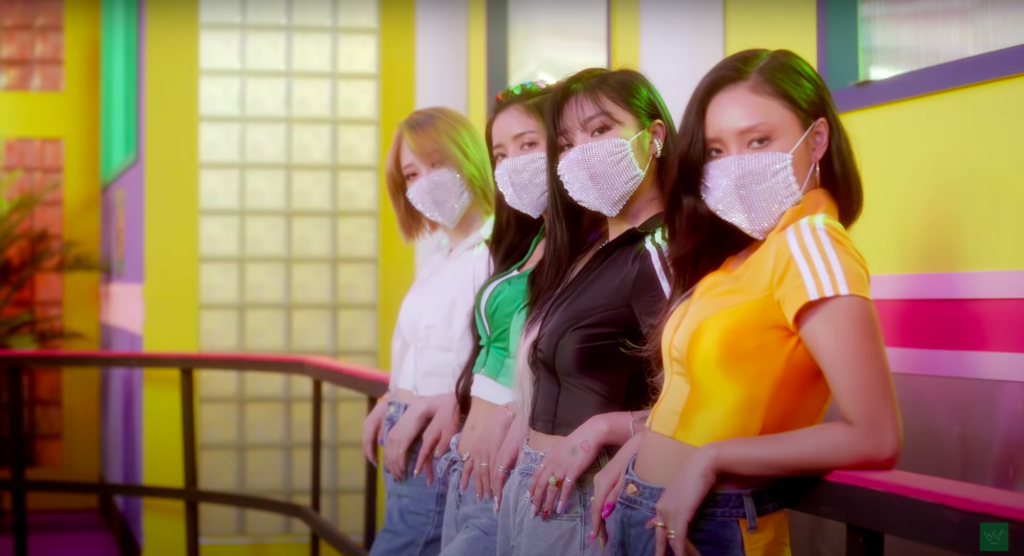
Moonbyul’s rap hits at a fairly universal feeling during this moment in time, as many people feel stuck, both literally inside their homes, and in life, as the days tend to blur together and maintain their mundanity. Throughout the remainder of the song, Mamamoo confesses that even their lives are at a standstill too — they’re lonely, bored, anxious, exhausted by life’s current uncertainties, and merely wishing to hang out and have fun with their friends again, much like the rest of the world. In the chorus, Hwasa sings, “Do you want to play? Do you want to gather your friends and have a drink?” For many fans, the common response to this is an astounding “Yes, we do!,” as “Dingga” perfectly encapsulates the trials and tribulations of pandemic life, reminding listeners that they’re not alone in how they’re feeling, which can be comforting in and of itself.
While these tracks are only a fraction of the releases that have contributed to K-pop’s status as a comfort soundtrack to audiences and fans around the globe amidst the pandemic — there’s also K-pop super-group SuperM’s “Better Days” and “Together At Home,” as well as Twice’s “Behind the Mask” — they represent a culmination of what K-pop has always been about: connecting with and relating to fans on a deeper level, through music. Between the candid descriptions and narratives about how COVID-19 has upended every facet of daily life in “We Lost the Summer” and “Dingga,” and the uplifting messages and reassurance that better days are ahead in “Life Goes On” and “Home;run,” and even the K-pop releases that don’t specifically touch on the pandemic but provide comfort in their own way, K-pop’s pandemic era music reflects the genre’s and industry’s special and historical connection to its fans and the moment its music is created in.
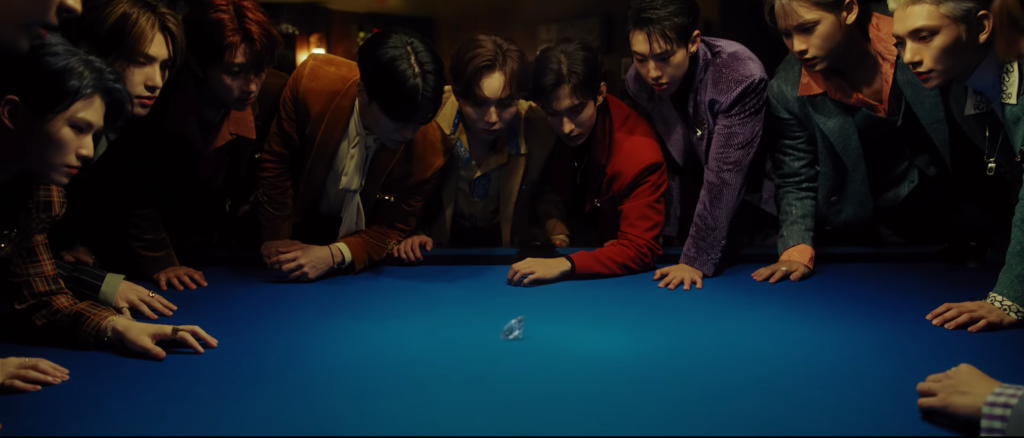
While K-pop was originally born out of crisis, leading to much critique of and pessimism about society in its music and lyrics, its messages have evolved as the crises it addresses, like the COVID-19 pandemic, emerge and unfold. Neither Seo Taiji and Boys nor the rest of us could have ever predicted that an event like a global pandemic would have upended and devastated every aspect of daily life, nor fully anticipated the wave of consoling and uplifting musical releases that have followed to address it. For K-pop to emerge as a shoulder to lean on and a poignant soundtrack of strength and healing for these dreary and uncertain times may come as a surprise to some. But, at the end of the day, it’s a striking reminder that what K-pop has bloomed into is what it’s always been: a comforting musical companion not just for some, but any and all moments in time.
Chloe Lelchuk is a recent college graduate and self-proclaimed pop culture aficionado from just outside Los Angeles. An avid entertainment stan, when she’s not listening to music or staying up into the wee hours of the night to watch comeback stages, she’s probably drinking way too much coffee, tweeting and deleting, or reading the “personal life” section of a celebrity’s Wikipedia page. You can find her on Twitter!
(YouTube: [1] [2] [3] [4]. Korea Herald: [1] [2]. Images via: Big Hit Entertainment, SM Entertainment, Pledis Entertainment, RBW. Translations via: Kgasa, Genius.)


